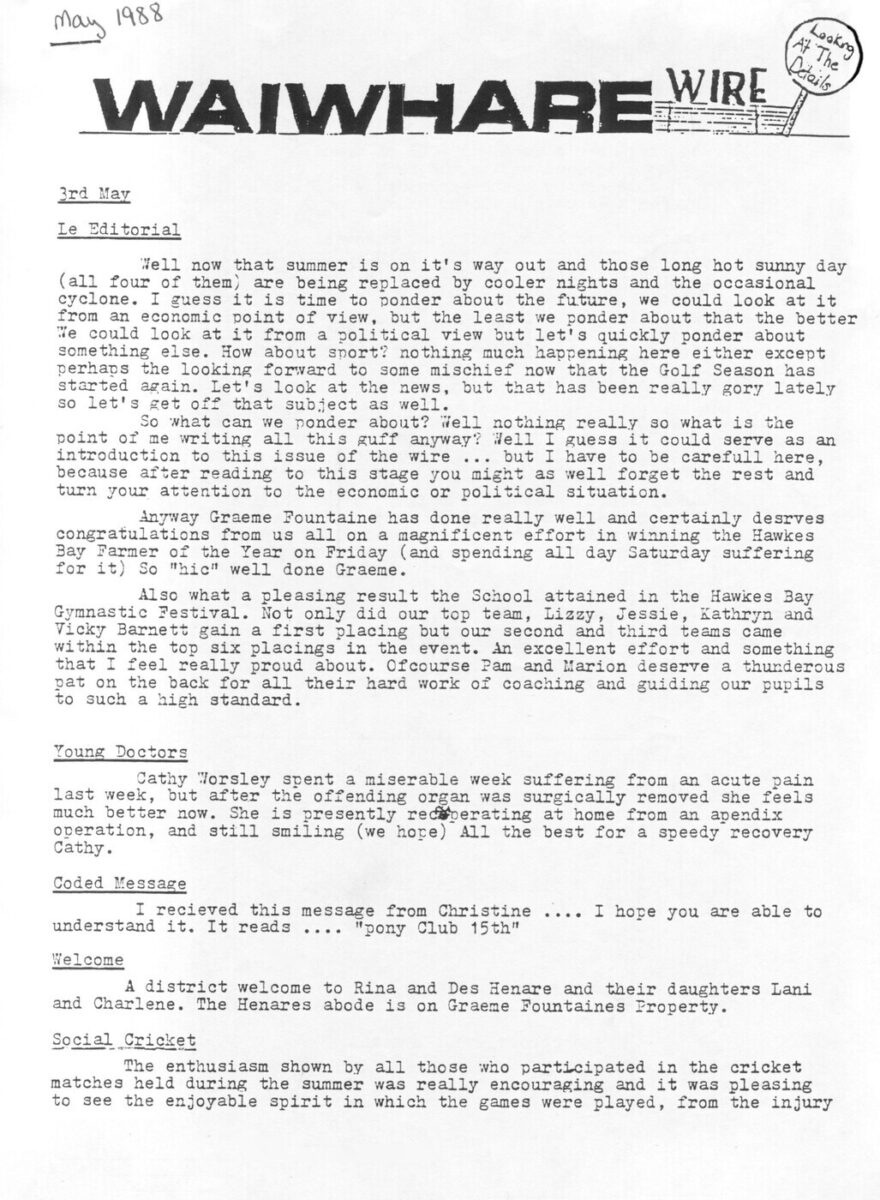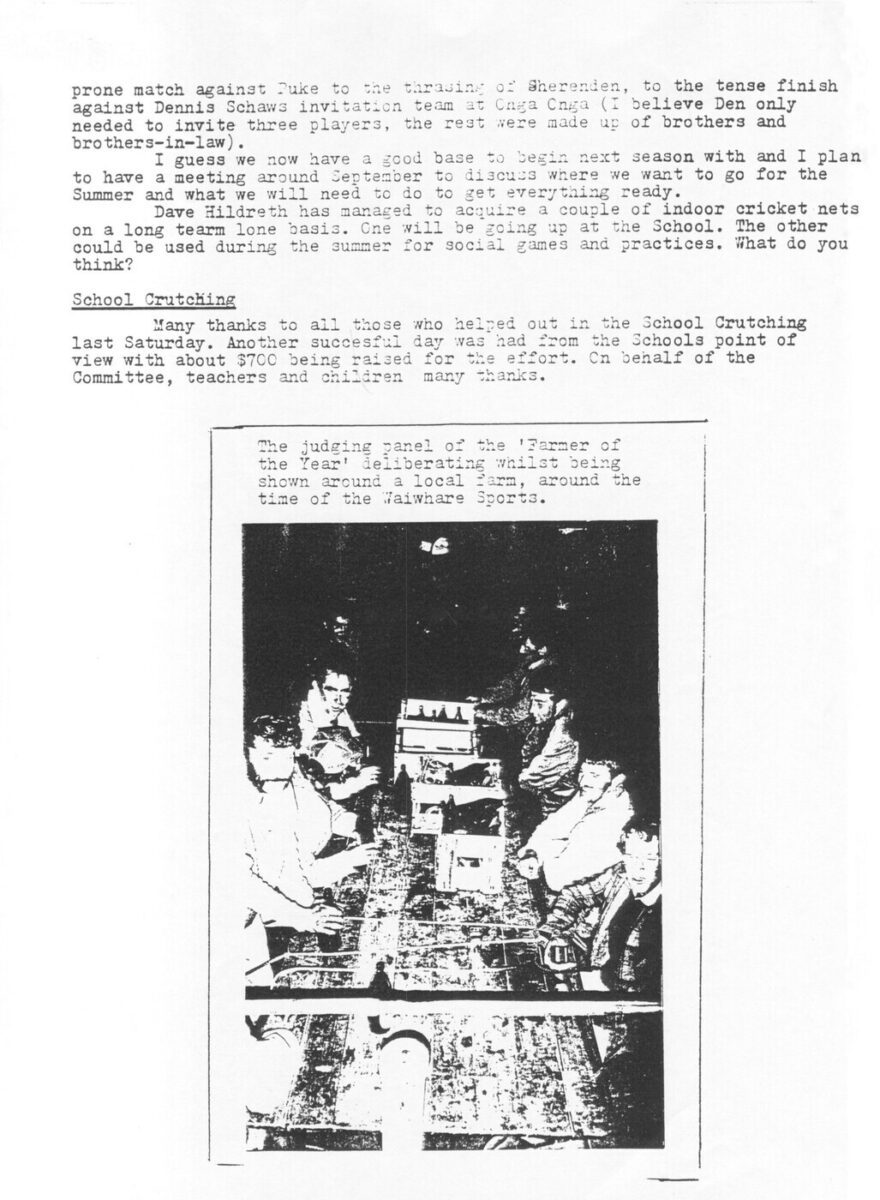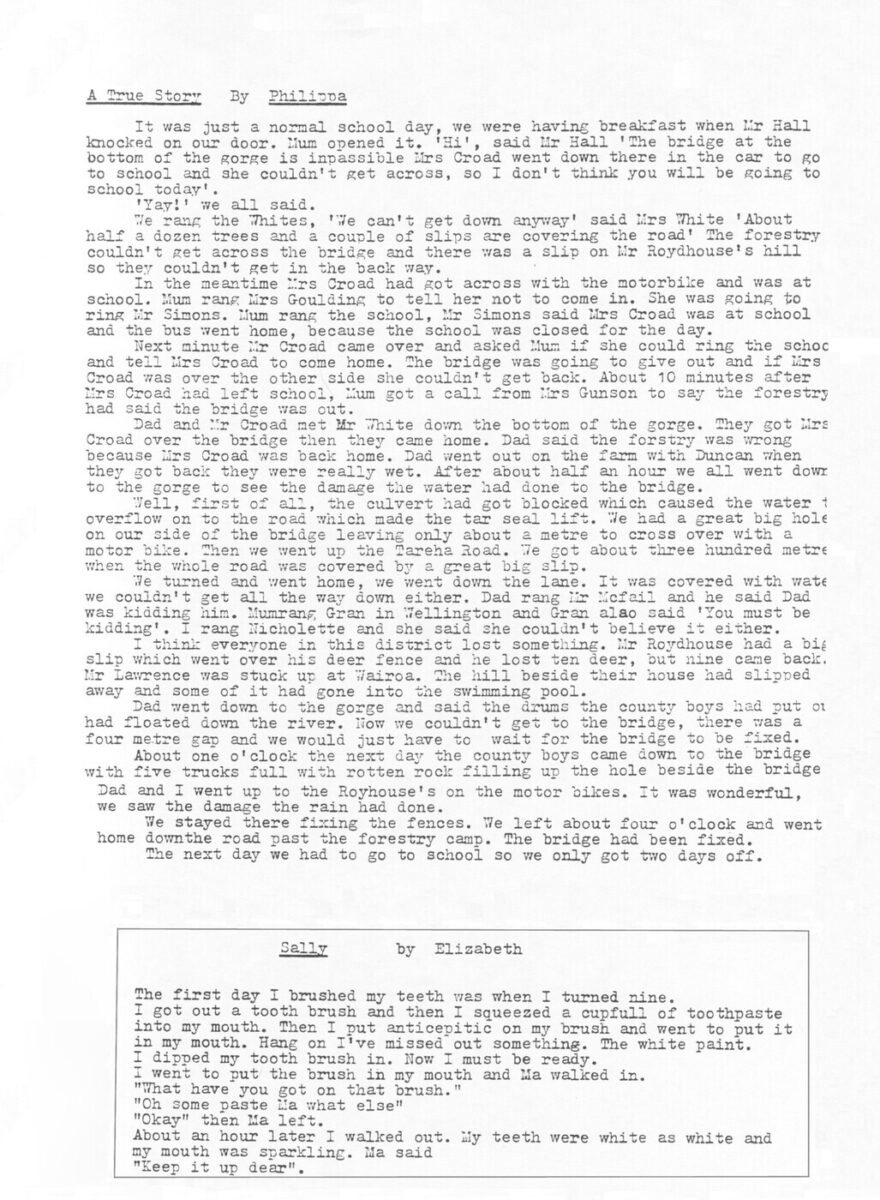COMMUNITY COMMENT.
There are a wide range of illnesses associated with Psychiatry. Some of these include Schi[z]ophrenia, manic Depressive, Anorexia, Bulimia, alcohol related depression, post-natal depression, Al[z]heimers disease, behavioural. So there are many ways in which we treat these problems.
Hastings Psychiatric Unit can accomodate up to 28 patients. Ten of these beds are for acute admissions and we have a separate wing for this purpose.
Not being a high security unit, we cannot hold sectioned patients. Therefore badly disturbed patients who are a threat to themselves or the community are sectioned by a Psychiatrist and a court judge, to have intensive treatment. Our patients are usually transferred to Lake Alice or Porirua Hospitals. Some may come back to us for continued treatment. They are still sectioned, but have trial leave. If they regress they are transfered straight back to whichever hospital they came from. Treatment includes drug therapy and electric shock therapy to a lesser extent, both are effective. Occupational therapy plays a large part in giving the patient good living skills and to build confidence. Also helps to assess their progress.
We encourage patients to be as independant as possible. This can help them to get back out into the community sooner. We have a daily programme and each patient is expected to adhere to it. Day patients also come in from 8:30 – 4p.m and join in the programme. Each patient is assigned to a team, depending on who their psychiatrist is, usually group therapy sessions are held each day. Nurses are very much involved here as well.
Observing and reporting on patients condition is essential, their needs vary greatly, so therefore each patient has his or her own nursing care plan which is drawn up by nursing staff on admission and evaluated daily.
An indepth knowledge of patients history is required. At the change of each duty a written and verbal report is given of each patient to on-coming staff. This of course helps to keep continuity from shift to shift.
We encourage relatives to be involved and a relative support group meets once a week.
Some patients who have a poor prognosis may need to be on medication indefinitely, and certain drugs do cause side effects, but there are drugs to counteract these. Others need long acting injections, so they come to the unit every 2-4 weeks for these. They are also constantly monitored by way of blood tests to avoid toxicity.
There is always the possibility of violence or an emergency. Nurses are expected to know how to deal with such events and to minimize danger to others, and themselves. We have an alarm system throughout the unit. Ward rounds are done every 15 mins and must know patients whereabouts at all times. The Police are available to assist us if necessary. Nurses meetings are held once a week.
As nurses, we work as a team with Psychiatrists, Psycologists [Psychologists], Occupational Therapists, also Social Workers. We are encouraged and given freedom to apply our knowledge, and only by complete involvement and continued awareness of patients changing needs, can we assist them towards optimal mental and physical health.
I find this area of nursing both interesting and stimulating I hope you have been enlightened.
Helen Ward.


















Do you know something about this record?
Please note we cannot verify the accuracy of any information posted by the community.